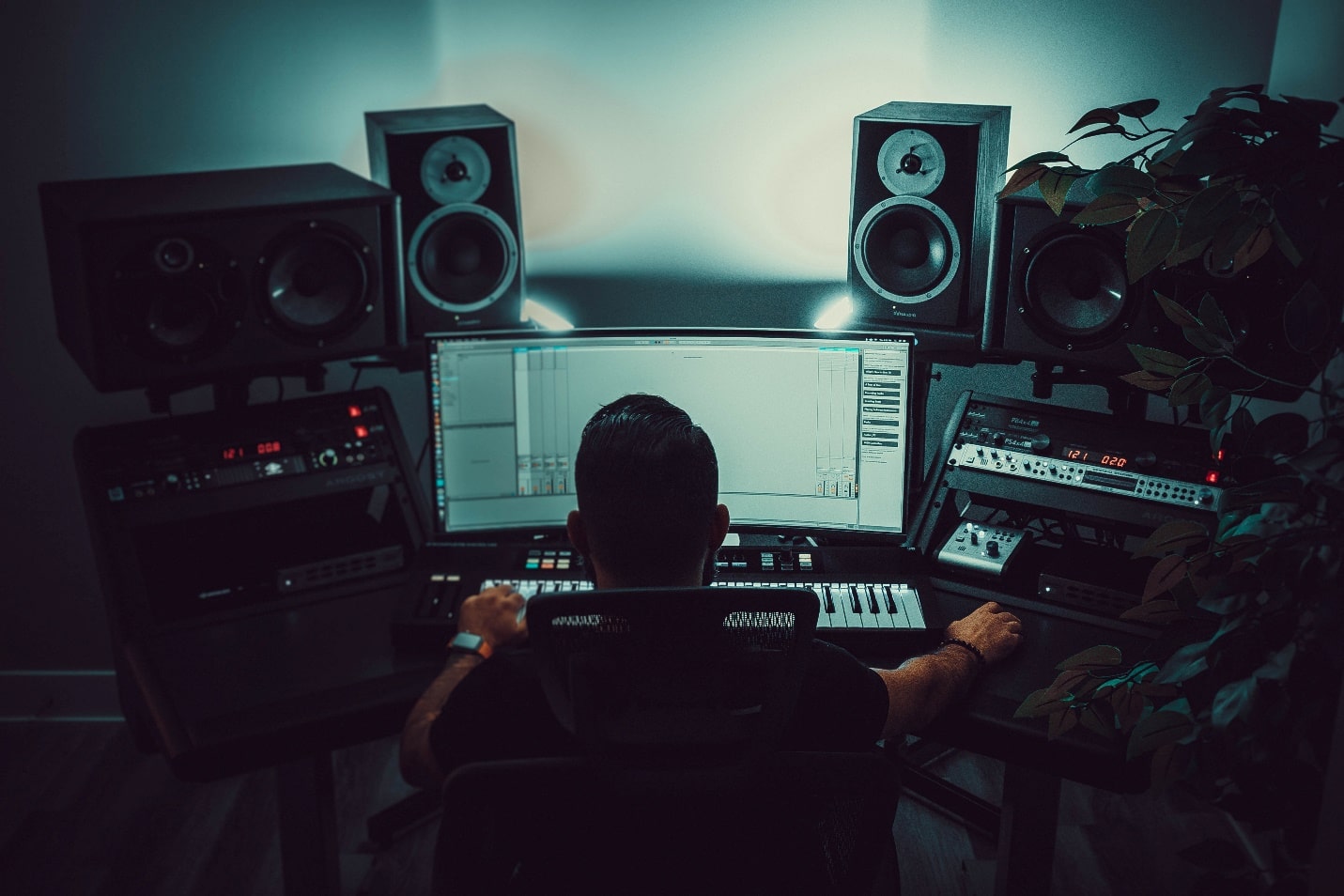Expecting to direct a voiceover for your upcoming project?
Then you’ve come to the right place!
Today, we are dishing out all the voiceover tips and tricks for successfully directing professional voiceover artists.
Recording voiceovers sounds easy. That’s until your voiceover talent performs differently than what you had anticipated. And the audio ends up sounding the complete opposite of what you had hoped for. To avoid such messy situations, you need a plan.
Discuss your requirements with your voiceover artist before they step into the recording booth. Good voiceover direction is all about communicating your objectives to your voiceover talent. With the help of clear and explicit instructions, both you and your voiceover artist can be on the same page.
While that’s the general idea, let’s now jump into more specific tips for effectively directing voiceover artists.

Voiceover Tip #1: Finalize the Script
Being the director, it’s your job to see that the whole voiceover process goes smoothly. To steer clear of any issues later, you must prepare your script in advance before the recording session arrives.
Some lines look good on paper, but when spoken, they sound very unnatural. Amend the script for such lines and make sure they flow nicely when read aloud.
Sit down and read through it to fix any errors you can find. Otherwise, you will be interrupting the voiceover artist during their session to edit out uncorrected mistakes. And we surely don’t want that!
Voiceover Tip #2: Spell It Out
Certain words can be hard to pronounce, and at other times, your script might contain words from foreign languages. In that case, you can’t just expect the voiceover talent to know how to deal with them.
So, if there are any difficult words in your script, provide specific guidance on them to your voiceover artist. Spell them out phonetically, so there is no confusion. You can do the same with words that have multiple pronunciations, proper nouns, and numbers.
For example, the number 120 should be spelt out as “one-two-zero”, “one-two-nought”, or “one twenty”, according to your client’s preference.

Voiceover Tip #3: Brief the Voiceover Talent
As a rule of thumb, always discuss your project’s background with your voiceover artist as soon as you sign them up. Whether they are a professional voiceover talent or a novice, the artist needs to know who they’re addressing. Without any idea about the audience, the voiceover talent will have no clue about the kind of tone, emotion, or style they need to use.
For instance, the narration for a children’s storybook will be vastly different from the voiceover for a television advertisement.
Therefore, as the director, explain the details about the project’s background so that the artist can deliver a more meaningful performance.
Voiceover Tip #4: Let Them Hear It
Getting the tone right is key to recording an authentic and engaging voiceover. But to get there, you have to be able to describe how exactly you want the voiceover to sound. Explaining things, unfortunately, isn’t most people’s strong point.
You might ask your voiceover talent to make the script sound ‘nice’, but that won’t be of any help. Maybe they have a completely different understanding of what ‘nice’ means. Rather than using vague words, be more precise while describing the sound. Choose words like inspired, friendly, uplifting, serious, warm, concerned, etc.
But if you still sense confusion, don’t hesitate to play some audio samples to clear things up. You can use samples from previous projects to give the voiceover artist a better idea of your target tone.

Voiceover Tip #5: Don’t Overdo It
Timely direction while recording voiceovers is a blessing. However, it can quickly turn into a curse if you don’t know when to stop.
If there are some sentences in the script you want in a certain style, there’s no harm in pointing them out to your voiceover talent. What’s not OK, however, is telling the artist to say each line only the way you want it to be.
Don’t forget that this is a professional voiceover artist you’re working with. So, instead of trying to control every little detail, let them have some space. Maybe your voiceover artist will surprise you by delivering lines in a better way than you had imagined.
Voiceover Tip #6: Time Is of the Essence
Often you will have to work on projects where the voiceover needs to match a certain timeframe. This is especially common for videos where the voice track has to fit in a specific time spot. For such situations, a useful voiceover tip is explaining the time restriction to the voiceover artist beforehand.
While putting a time limit on words is a common practice, make sure your script is not too wordy for the timeline. You don’t want the artist to rush through their lines. That will sound terrible!
So, take out any fluff and extra words, and also time the script before you hand it over to the voiceover artist.

Voiceover Tip #7: Trust the Voiceover Artist
When directing voiceovers, you must understand, your voiceover only sounds as good as you make the artist feel. In recording their voice, voiceover artists have to work with their emotions and experience. This is not an easy task for them as they’re putting out their voice to be judged by others.
It’s natural to feel anxious and nervous while delivering a voiceover performance. And as the director, it’s up to you to make the voiceover talent feel as comfortable as possible. Crack a joke or have a laugh with them. There’s no point in tensing up.
If your artist is in a good mood, they’ll be confident in their ability. That means you’ll get an outstanding voice performance out of them in the shortest amount of time. Now that’s a win-win situation!
So, the Bottom Line Is
Be open with your voiceover talent about how you want the voiceover to sound. Connecting with your voiceover artist and effectively communicating your demands are the only things that will get you your desired results. Use these voiceover tips to guide yourself as you direct your voiceover talent.
But while you’re at it, don’t overstep your professional voiceover artist’s boundaries, and remember to be respectful at all times. It’s essential to maintain a positive and healthy atmosphere. If both you and the voiceover talent are relaxed, you’re more likely to record a natural-sounding voiceover. So, don’t forget to let loose and have a bit of fun!
Primary Keywords:
Voiceover artist
Voiceover talent
Secondary Keywords
Voiceover tips
Professional voiceover
